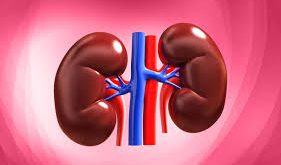When disasters or accidents occur, our immediate response often involves providing physical first aid. However, the psychological impact of such traumatic events is just as critical, and addressing this requires what is known as “psychological first aid.” This form of support focuses on offering emotional and mental care to those affected, ensuring they feel understood, comfortable, and supported during their time of need.
What is PTSD?
Post-traumatic stress disorder (PTSD) has become a topic of widespread discussion on social media, particularly in the wake of the recent disasters in Wayanad. Trauma can result from any perceived injury, with negative experiences, accidents, unexpected events, and physical or emotional harm all potentially impacting mental health. PTSD develops when such traumatic experiences lead to persistent distress, including disturbing thoughts, dreams, and memories. Symptoms often emerge within the first three months following the traumatic event, and individuals with PTSD may become fearful and avoid conversations about the trauma, although the memories may continue to resurface through nightmares and flashbacks.
Therapy for PTSD
Individuals who experience trauma need well-structured psychological services. Professional support from qualified clinical psychologists or psychotherapists is crucial in these situations. These professionals are trained to provide therapy tailored to the unique needs of each individual, offering a range of options from short-term therapy sessions to longer-term treatment plans. Typically, therapy may involve six to eight sessions (brief therapy-need based), but in cases where the individual’s needs are greater, the therapy may extend beyond 20 sessions, extending a year.
For those struggling with the grief of losing a loved one or dealing with severe trauma, specialized therapies like grief therapies. Eye Movement Desensitization and Reprocessing (EMDR) is specifically designed to help individuals process and move past traumatic memories. Number of therapy sessions for this is normally eight. Other individuals may simply require a space for emotional ventilation, where they can express their feelings in a supportive environment.
Once the initial therapy sessions are completed, ongoing maintenance sessions are often planned. These sessions are designed to prepare individuals for future challenges, equipping them with the tools they need to cope effectively. Booster sessions may also be scheduled after a few months to ensure that the individual continues to manage their emotions well and remains resilient in the face of new challenges.
Future Directions: The Way Forward
Follow-up sessions are equally important, providing a structured plan for individuals to know what steps to take when they encounter difficult situations. It’s crucial that those offering support convey a sense of respect and non-intrusiveness, allowing the individual to feel safe and valued during their recovery process.
Supporting individuals through such traumatic experiences can be challenging, not only for the person affected but also for the therapist. It requires managing one’s own emotional responses, a process known as counter-transference. This can be a significant challenge, highlighting the importance of therapists being well-equipped to regulate their emotions while providing care.
Addressing PTSD and other trauma-related issues requires a comprehensive approach that includes psychological first aid, tailored therapy sessions, ongoing support, and respect for the individual’s emotional space. By offering structured and empathetic care, we can help those affected by trauma rebuild their lives and regain their emotional strength.
Prepared by: Dr. Lisha P Balan, Clinical Psychologist, Prayatna Centre For Child Development, Kochi
 Newspatrolling.com News cum Content Syndication Portal Online
Newspatrolling.com News cum Content Syndication Portal Online







